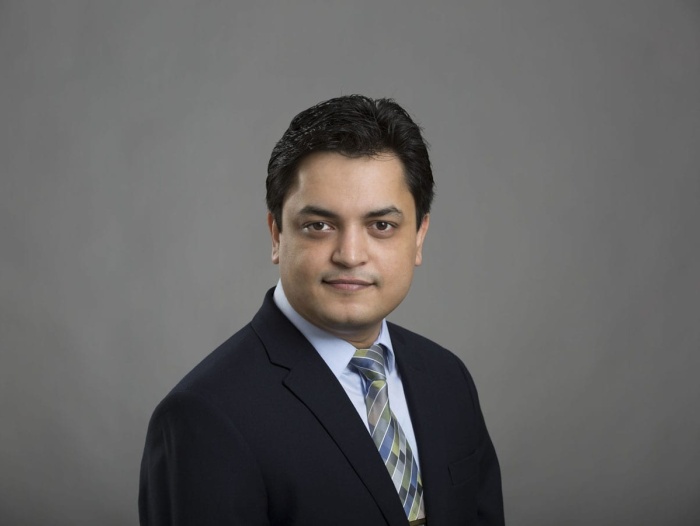The neuroradiology fellowship is an Accreditation Council for Graduate Medical Education-approved, one- or two-year clinical training program. There are four first-year and two second-year fellowship positions. In our program, the fellows train in an array of imaging modalities, including computed tomography, magnetic resonance imaging, PET imaging, radiography, as well as the advanced imaging modalities including functional MRI, perfusion imaging, MR spectroscopy, and fetal MR imaging. Fellows also build competence in invasive procedures, including myelography, pain-therapeutic injections, and image-guided biopsies related to spine and head and neck pathology.
Centered in the Department of Diagnostic Radiology and Nuclear Medicine, the busy neuroradiology section performs between 55,000 to 60,000 neuroimaging studies annually on the state-of-the-art equipment including two 3T MRI, three 1.5T MRI, and eight Multidetector CT scanners including three dual-energy scanners. A 1.5T MRI and two MDCT scanners are also run on the satellite hospital.
Fellows participate in all aspects of daily patient care, including pre-procedure patient evaluation and post-procedure patient care. Teaching conferences, didactic lectures and multi-disciplinary conferences supplement the clinical experience.
Fellows work closely with the seven board-certified neuroradiologists. Senior faculty members are also senior members of the American Society of Neuroradiology, and are board-certified in diagnostic radiology with subspecialty certification in neuroradiology. Section chief, Dr. Miral Jhaveri, is an author and contributor to the well-acclaimed StatDx, Radprimer and Diagnostic Imaging Brain. Each faculty offers different subspecialty interests and expertise.
How to apply
- Complete the Rush Fellowship Application Form. Send to Bryent Edwards via mail or email.
- Three letters of recommendation from professional sources. Letters from current mentors preferred.
- Letter of recommendation from the director of the applicant's most recent training program.
- The applicant must have a valid license to practice medicine in the State of Illinois.
- The applicant must have completed a residency in diagnostic radiology and must be board-certified or board-eligible in diagnostic radiology.
- International medical graduates must have completed a residency in diagnostic radiology in the country of origin and must have a valid and current certification of the radiology board of their country of origin. These candidates must be eligible to obtain a license to practice medicine in Illinois and must have a valid ECFMG certification which requires clearance of USMLE steps 1, 2 and 3.
For application materials and general inquiries, please contact:
Bryent Edwards, Program Coordinator
Department of Diagnostic Radiology and Nuclear Medicine
1653 W. Congress Parkway
Jelke Building, Suite 181
Chicago, IL 60612
bryent_edwards@rush.edu
(312) 942-5759




